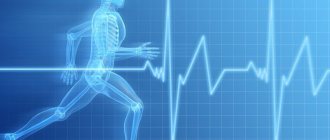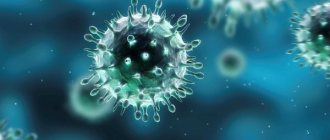Belching occurs in almost every healthy person and is caused by physiological processes in the body. However, if regurgitation is accompanied by pain, an unpleasant odor and taste, and causes shortness of breath, this can be a symptom of a serious illness.
Abnormal regurgitation of air, which leads to prolonged difficulty breathing, is a symptom of the presence of pathology.
Possible reasons
Stomach neurosis can occur due to a variety of physiological and psychological factors. Psychological reasons include various internal personality conflicts, frequent stress, psychological trauma, and depletion of vitality.
Interesting fact: Sigmund Freud, as the fundamental cause of any neurotic conditions, described the discrepancy between a person’s morality and his animal instincts, which causes a kind of conflict of values. His followers have repeatedly argued that a predisposition to neuroses begins in childhood.
Functional causes include disorders of the brain, digestive organs of the liver, as well as various mental disorders. Neurosis can also occur due to poor nutrition, food poisoning, and bad habits. One of the factors influencing the development of a neurotic disorder of the gastrointestinal tract is hypochondria - a condition manifested by a person’s excessive concern for his own health.
Certain forms of the disease
Gastric neurosis can manifest itself in quite a variety of symptoms from the gastrointestinal tract. As a separate form of the disease, it is customary to consider the so-called nervous vomiting, which easily occurs immediately after eating. Nausea, which usually precedes vomiting, is absent in this condition.
Another condition accompanying neurosis of the digestive organs is aerophagia. Aerophagia is a loud belching that occurs as a result of swallowing a large amount of air. If the patient has a hysterical type of neurosis, then belching may be accompanied by specific loud sounds and even shouts. Such symptoms arise due to the involuntary swallowing of air, which circulates between the cardiac part of the stomach and the pharynx, and then comes out. Sometimes aerophagia is accompanied by gastrocardial syndrome.
Aerophagia is usually eliminated with the help of explanatory psychotherapy, aimed at explaining to the patient the mechanism of this phenomenon. As a result of this therapy, the patient can be convinced that he can and should suppress belching.
Other symptoms that appear in neurosis of the stomach or intestines are associated with disturbances in the patient’s appetite. They can manifest themselves as bulimia or anorexia, in which a strong feeling of hunger disappears with the first sips of food or an aversion to food develops. Nervous heartburn is another symptom that often characterizes neurosis. It differs from ordinary heartburn in its persistence, when even if you follow a special diet, its symptoms do not disappear.
Aerophagia and gastric neurosis
Many sites on the Internet write that aerophagia is the swallowing of air while eating, which leads to belching.
But this formulation is not entirely correct, because judging by it, one might think that a person should not swallow air at all while eating, and the question immediately arises: how to do this? (unreal). When eating, air is swallowed in any case, and this is normal! But with aerophagia, we are talking about an increase in air (swallowed with food and not only) in the stomach and colon, which is converted into gas. Symptoms of aerophagia in gastric neurosis can be:
- outgassing;
- belching;
- hiccups;
- vomit;
- flatulence (bloating);
- abnormal heart rhythm;
- raising the diaphragm;
- burning in the heart area;
- enlarged stomach;
- weight loss;
- stomach upset.
- dyskinesia of the biliary tract;
- stomach ulcer;
- stomach cancer;
- and others.
- smoking;
- active use of chewing gum;
- gastritis;
- respiratory tract diseases;
- diseases of the teeth, oral cavity.
- do a light abdominal massage with your hands;
- physical exercises (for example, lie on the floor, arms along your body, and raise both legs to a vertical position and back. Repeat this several times. Or the second option: in a lying position, press your bent legs to your stomach and, as it were, massage your stomach with them. This exercise is especially useful for those who have accumulated excess gases in the intestines;
- take a warm bath.
- Chew food thoroughly (until it turns into liquid pulp);
- do not talk while eating;
- consume as much healthier food as possible (i.e., which contains useful substances for the body, for example, in a hamburger this content will be minimal) vegetables, greens, fruits, nuts, kelp is useful, fiber (for example, bran)
According to the symptoms, aerophagia can be confused with:
To correctly determine the disease, it is better to consult a doctor; they use ECG, ultrasound, and FEGD for this.
The disease can be caused not only by mental disorders (for example, neurosis), but also by:
Aerophagia also occurs in infants; this is associated with hungry breastfeeding, so it is recommended to hold the baby in a standing position for a while after feeding.
To get rid of aerophagia the moment it starts to bother you
you, try:
To get rid of aerophagia forever
and to be a healthy person, neurosis should be eliminated. But here we are no longer talking about treatment, but about getting rid of the causes that cause neurosis (after all, gastric neurosis and aerophagia are its consequences). But there are no reasons for neurosis, there will be no neurosis, no stomach neurosis, no aerophagia :)
To prevent aerophagia
recommended:
Since aerophagia is very often observed in people with mental disorders
(for example, neurosis), then it is advisable to include in your life:
- physical exercise;
- schedule
- during the day - your own affairs/work, at night - sleep;
- Don’t overload yourself, alternate between work and rest.
www.nevroz-lechenye.ru
Other clinical manifestations
In addition to the above signs, other general symptoms that often manifest gastrointestinal neurosis can be identified:
- a constant feeling of discomfort in the stomach, associated with a feeling of fullness or, conversely, emptiness;
- pain in various parts of the intestines and the entire peritoneal space, which can radiate to the lower back, groin and other organs;
- changes in taste preferences: sudden aversion to previously loved food;
- increased appetite;
- general malaise, manifested in sleep disturbances, headaches, weakness, etc.
Very often, people do not pay much attention to such symptoms, mistaking them for a common digestive disorder. However, if they last for a long time, it is definitely recommended to undergo a comprehensive examination, since the appearance of pathological signs may be associated with neurosis.
How neurosis manifests itself
Gastrointestinal neuroses are common in medicine. The disease most affects middle-aged women. Manifestations of pathology are divided into two categories:
The main symptoms of gastric neurosis are signs such as:
Constipation and diarrhea may also occur. A specialized specialist can clarify and establish the cause of these conditions. The clinical picture of neuroses is almost the same, since they have common psychosomatics. In addition to discomfort in the epigastric area, there may be changes in other areas. For example, fainting, migraine, pressure changes, insomnia, “nervous” behavior, phobias, panic attack, heart pain, frequent urination.
Independent neuroses of the intestines and stomach are rarely observed. Usually there is a mixed process. Painful sensations increase in the evening, they can be stopped by normalizing the emotional state. The “double” type of neurosis is often observed in people with vascular problems and excess weight. Unbalanced individuals also fall into this list.
The symptoms of the disease are similar to other, more serious pathologies. Therefore, during the examination, the doctor must conduct the necessary examination to make sure there are no ulcers, gastritis, or stomach cancer.
Diagnostics
The diagnosis of gastric neurosis is based on identifying its main causes. The doctor must rule out diseases of the intestines and other organs of the digestive tract that have similar symptoms. For this purpose, complex gastroenterological diagnostics are prescribed. Depending on the prevailing clinical picture, differential diagnosis can be made with peptic ulcer disease, pancreatitis, helminthic infestation, cholecystitis, etc.
If no functional pathologies of the stomach and intestines are identified, a neurologist should further examine the patient. A consultation with a psychiatrist is also necessary, who will collect a detailed history of the patient’s life and develop psychotherapeutic treatment aimed at correcting the patient’s psycho-emotional state.
Therapy
Treatment for this disease involves, first of all, eliminating tension and restoring normal functioning of the stomach. Neurosis should be treated comprehensively with the use of medications and mandatory consultations with a psychologist.
To normalize the digestive process, the patient is prescribed a therapeutic diet. The doctor will recommend a certain diet, as well as a regimen that must be strictly adhered to in order for the treatment to give the expected result. A nutrition plan is prepared individually for each patient with the help of a qualified nutritionist, who takes into account the general condition of the patient and the results of diagnostic examinations.
Drug treatment may involve taking mild sedatives that will help eliminate some unpleasant symptoms. Regular psychotherapy sessions will also help eliminate neurosis. If necessary, the doctor may recommend taking medications that regulate the activity of the endocrine system, as well as vitamin complexes.
To improve the functioning of the gastrointestinal tract and normalize the psychological state of the patient, physiotherapeutic treatment is also prescribed. Hydrotherapy, baths with soothing herbal infusions, electrotherapy and relaxing massage have a good effect. If you have the opportunity to go to a sanatorium-resort treatment, this will be very useful for normalizing the condition of neuroses.
In general, gastric neurosis can be eliminated by strictly following medical recommendations. In addition to basic therapy, patients are advised to lead a healthy lifestyle, spend time in the fresh air as often as possible and avoid stressful situations.
Treatment for belching and coma in the throat
Therapeutic measures for belching and coma in the throat are carried out taking into account the diagnosis and the reasons that provoked the symptoms.
Endocrine problems
If a lump in the throat and belching are caused by pathologies of the thyroid gland, it is necessary to eliminate the inflammatory processes. Iodine deficiency can be replenished with the following foods:
- greenery;
- seaweed;
- any seafood;
- champignons;
- legumes;
- all types of cabbage.
Neuroses
People experiencing a lump are advised to rest, eat a healthy diet and get enough sleep. If the diseases are advanced, they resort to drug therapy for a coma in the mouth.
- Under the supervision of a doctor, the patient takes antidepressants or sedatives.
- Digestive system
- Based on the test results and after diagnosis, the doctor selects drug therapy for the patient.
The following medications may be prescribed:
- Rennie;
- Gastala;
- Motilaka;
- Almogel.
Diet is important in the presence of coma. The patient should also regularly perform therapeutic exercises.
Oncology
If there are tumors that cause negative symptoms, the patient is prescribed surgical intervention.
To avoid a lump in the throat and belching, it is important to observe the following measures:
- use fractional meals;
- chew food thoroughly;
- drink food with a small amount of liquid;
- avoid eating spicy foods;
- avoid stress;
- get enough sleep;
- to live an active lifestyle.
Related posts:
- Hysteria: how does it manifest itself and what should you know? Hysteria is a mental disorder that manifests itself in a variety of functional,…
- Phobias and stress in children Phobias in children and adolescents are pathological, excessively expressed reactions of fear,...
- Panic attacks in children Panic attacks in children are sudden, provoked or causeless attacks...
- Fear when swallowing food There are a great many different human phobias. Starting from fear of predators...









